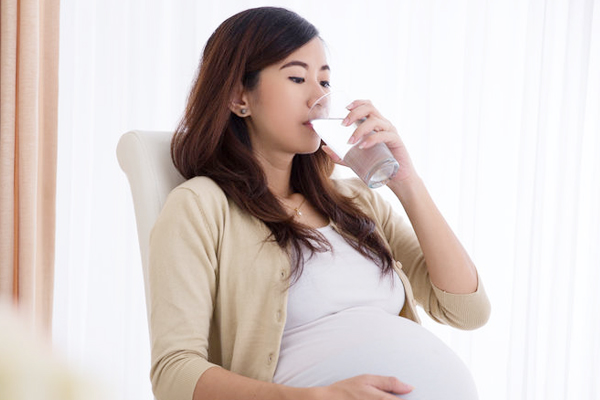
Hydration is essential in any stage of our life and all the more so during the pregnancy as water is a key element in the foetal development
Dehydration during pregnancy can also cause other symptoms such as headaches, nausea, cramps, oedema and dizziness.
It’s especially important to stay hydrated in the last trimester, when dehydration can cause urinary infection that can trigger contractions which can trigger preterm labour.
Water makes up 60% of your body. Water is essential because it.
• Regulates your internal body temperature
• Builds your cells
• Transports proteins and carbohydrates via your bloodstream
• Lubricates your joints
• Flushes waste from your system
• Forms your saliva
• Acts as a shock absorber for your spinal cord and brain
During pregnancy, though, your body needs more water to:
• Produce more blood
• Promote your baby’s blood circulation
• Form amniotic fluid, which is the liquid that surrounds your baby
Pregnant mothers should drink 8 cups to 12 cups of fluids a day
You get about 20% of the water you need from the food that you eat, so try eating more foods that are high in water content. Foods that have 90% to 100% water content include:
• Vegetables like cabbage, celery, and spinach
• Fruits like watermelon and strawberries cucumber
• Drinks like fat-free milk and water
Foods with 70% to 89% water content include:
• Dairy products like yogurt
• Fruits like grapes, pears, and oranges
• Vegetables like avocados and carrots
Prevents constipation and haemorrhoids
Entered water, which dissolves the waste products and helps flush them from the kidneys and bowel
Since constipation is pretty common in pregnant women — not to mention the fact that constipation pressure can cause hemorrhoids
Prevents UTIs
Drinking enough water also keeps your urine diluted, which not only keeps things flowing but also keeps UTIs, bladder infections and kidney infections (which are types of UTIs) away
Cools you down
It’s true, the heat is on (high!) when you’re expecting. But if you drink water during pregnancy, you can keep the body’s cooling system running smoothly
Fights fatigue
An ample flow of fluids also keeps pregnancy fatigue in check one of the first symptoms of dehydration is exhaustion and can keep away headaches
It also helps your body get rid of excess sodium among other things, minimizing swelling — particularly swollen feet or ankles.
Signs of Dehydration While Pregnant
If you don’t drink enough water during pregnancy, you’ll be dehydrated. This means your body is losing more water than you’re taking in. Signs of dehydration include:
• Urine that’s dark-colour
• Urinating less frequently
• Extreme thirst
• Dizziness
• Fatigue
• Confusion
Mild dehydration may affect your memory or your mood. It may also impact how well you process information. Mild dehydration symptoms usually go away after you drink water, but you may need medical help if you have severe or consistent dehydration.
Dehydration may also cause other complications during pregnancy. This includes:
• Swelling
• Birth defects
• Kidney stones
• Urinary tract infections, which may lead to preterm labor and birth
Tips To Help You Drink More Water during Pregnancy
Here are some ways to help you drink more water:
• Listen to your body. You should drink enough fluids so that you don’t feel thirsty often.
• Exercise. Try to stay out of the heat, though. Exercise early or late in the day, or exercise indoors.
• Use soups, milk, juice, and herbal tea to increase your fluid intake.
• Eat more vegetables and fruits, not just for a well-balanced diet, but also because they contain water too.


